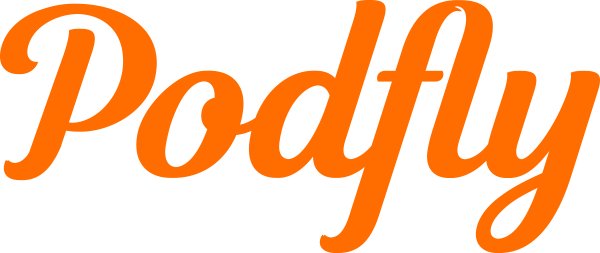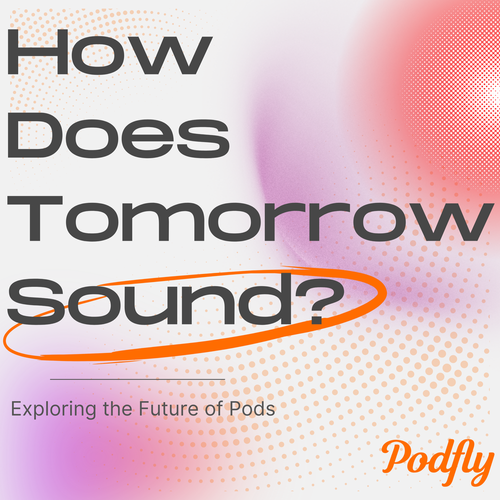This podcast explores the future of digital audio and asks what podcasts might become in ten years.
FOLLOW:
Apple Podcasts | Spotify | RSS
Do podcasts stand a chance against Tik Tok supremacy? Viral audio borrows cool from pop music and pop culture. Charlotte Shane calls this “brainfeel” in her recent Times Magazine article. Our brains are happiest when something we already like is the vector for new learning. Similarly, pop music borrows cool from licensing old hits, according to Switched on Pop co-host Charlie Harding, after recent precedent ended from the kind of liberal sampling that enabled hip hop and rock to flourish. So is Tik Tok the last bastion of the mashup? Finally, audio engineer Matt Yocum talks mixing with Dolby Atmos. Is centering the listener in a 3-D space the bridge to audio for augmented reality?
If you dig us, please subscribe, review, and share — it really helps. And thanks!
The Big Takeaways:
Do podcasts stand a chance against Tik Tok supremacy? Are podcasts even in the running? Tik Tok works because of the virality of its audio memes, but how do audio memes work? Some rely on pop music, others reference pop culture, but most, if they’re successful, use popular audio to say something new, or to say something old in a new way.
Writer and publisher Charlotte Shane wrote a piece for the New York Times Magazine called “Why Do We Love Tik Tok Audio Memes? Call it ‘Brainfeel’.”
Charlotte breaks down why certain memes work, like Chris Gleason’s “They’re Not Gonna Know; They’re Gonna know.” Neleigh, our resident expert in pop culture, also breaks down this meme into its syntax and anaphones and gets real nerdy on us.
“If we get it right, but then there's even more information that kind of accompanies us accurately predicting what was coming next, then our brains are just like, “Holy cow. Whoa, like. This is a big opportunity to learn something.”
“But I just think that Tik Tok’s algorithm is so superior and of course it has way more users. So I do understand why people are afraid of its power. Cause like we, we probably should be. It's ability to influence culture right now [...] feels to me like absolutely unprecedented. I don't know what anyone could point to that would be like that moves as fast and diffusely through countries.”
“I think podcasts definitely have an aura of they're like upper class compared to TikTok, it's like they're actually like not for the masses, even though obviously they are.”
Neleigh Olson, pop culture expert, lecturer at University of Louisville, and co-host of our show, breaks down the syntax of Nobody’s Gonna Know, including the nineties reality TV fight music, and the “anaphones” that reach into listeners brains to create significance.
“Even this meme that I looked at – the “Nobody’s Gonna Know” – ironically, nobody does know where the original came from, right? I had to look it up [...] and the whole point is that it’s morphable, it’s a shape shifter.”
Charlie Harding is the co-host of the podcast Switched on Pop about the making and meaning of popular music. He shares with us his recent deep dive into the rise of the interpolation in popular music. In the last five years, there have been twice as many interpolations than in the five years previous. Why is this? What does it mean for pop music? And for how we make culture?
“An interpolation isn’t a cover; It’s not a sample; It’s taking pre-existing material and making something new with it.”
"One of my friends that I spoke with, songwriter Jenny Owen Youngs, she said that, “There's no hook that hooks you better than a hook that's already hooked you”
“And people are doing this because they want things to go big on Tik Tok. That’s 100 percent the strategy.”
“I think a great culture podcast can help slow culture down when culture moves so quickly. Even if it's something very silly, like explaining a meme, it can be very rewarding to okay, wait, let's look back. Like, how did this whole thing happen?”
Matt Yocum, supervising sound editor and rerecording mixer, edited The Left / Right Game by QCODE, one of the first shows to ever be produced in Dolby Atmos surround sound.
“Like a lot of people consider sound design to be a technical craft, because we're using computers, we're pushing faders, twisting knobs. But at the end of the day, it's actually the thing that ultimately helps you feel identified with a character as opposed to feeling like a third person viewer.”
“One of the coolest things about Atmos is that, like, truly, it wasn't really built for one form of content or another. It's just a tool. And to that end, anybody can take advantage of and find new and innovative ways to use that tool. It's really an open sandbox.”
Podcasts already use audio memes, like for example, catch phrases, laugh tracks, sound effects, and the way our show borrowed signifiers and codes from “Wait Wait, Don’t Tell Me” for the game show we hosted in Episode 2. But podcasts do not have the virality that Tik Tok audio memes have, and that is because our form is interested in, and has a reputation for, slowing culture down, and making sense of it. As Dr. Sylvia Chan-Olmsted said in Episode 2, different media gratify different needs, and occupy different spaces in a consumers’ media landscape. So podcasts may benefit from the two competitive advantages of being audio first and of being brainy and slow. Wishful thinking? Only time will tell.
Sorry we had to kill Neleigh-bot. This episode was too meaty for the sci-fi treatment. That said, it’s important we flag that her opening text is adapted from text suggested by GPT-3, which was made widely available in early December. You can sign up to try it, if you dare, here.
Contact Us
Tell us what you really think, by emailing PodflyCalls@gmail.com.
Or check us out online:






















